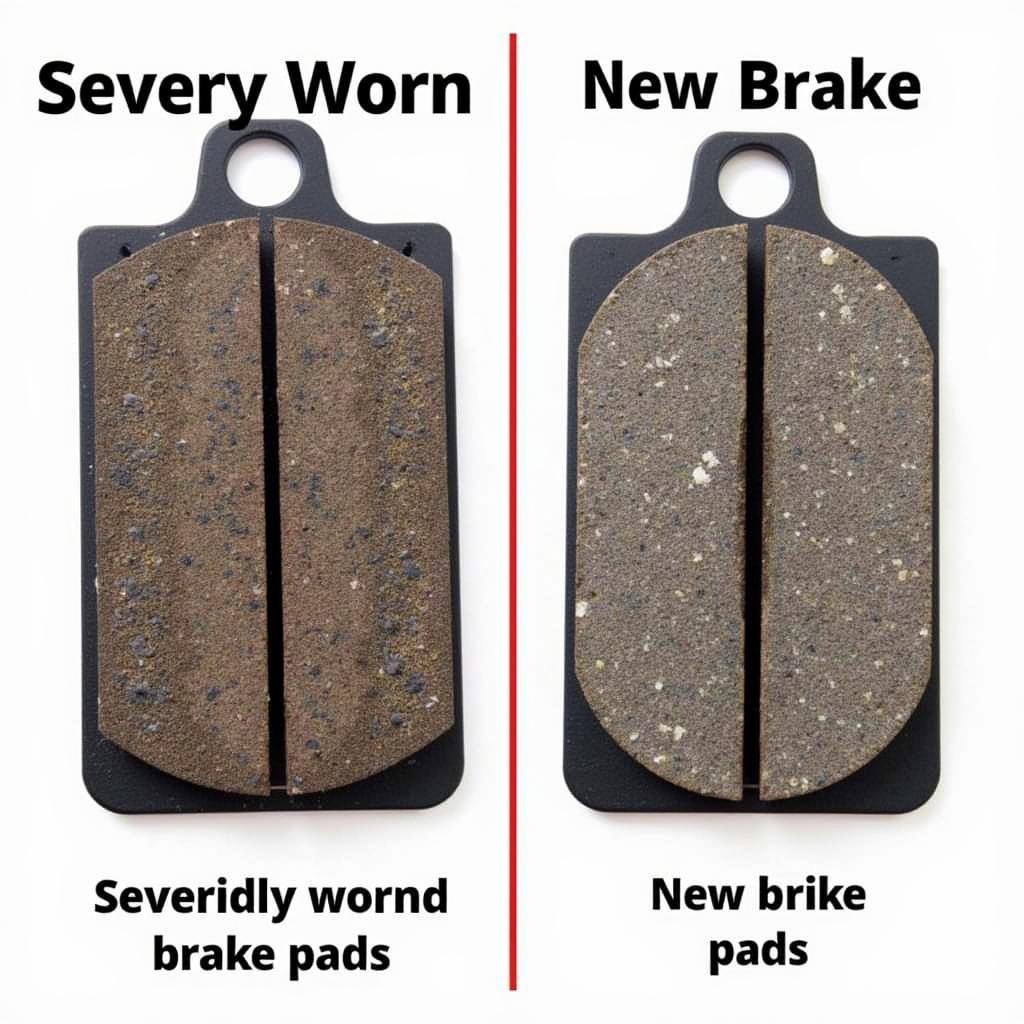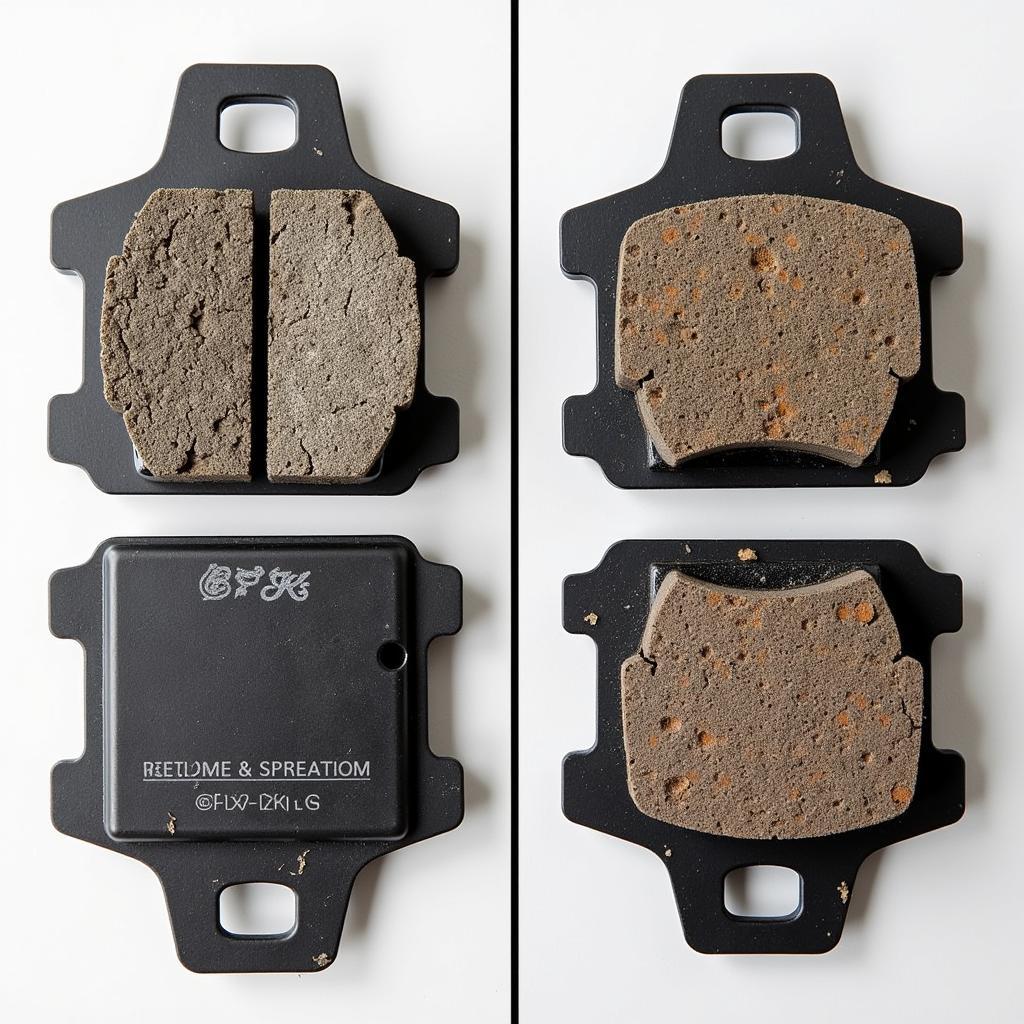The brake warning light on your 2001 Ford F150 is a crucial safety feature, illuminating whenever the vehicle’s computer detects an issue within the braking system. While a temporary flicker might not be a cause for immediate concern, a persistent brake warning light demands attention. Ignoring it could lead to decreased braking performance and increase the risk of accidents. This comprehensive guide delves into the common causes behind a 2001 Ford F150 brake warning light and provides you with troubleshooting steps to address them.
Understanding Your Brake System
Before diving into the specifics of your 2001 Ford F150, it’s helpful to have a basic understanding of how automotive brake systems work. Your F150 utilizes a hydraulic system where pressure applied to the brake pedal is amplified and transmitted to the wheels, causing the brake pads to clamp down on the rotors, generating the friction needed to stop the vehicle.
Common Causes of a Brake Warning Light on a 2001 Ford F150
Several factors can trigger the brake warning light in your 2001 Ford F150. Here are some of the most common culprits:
1. Low Brake Fluid Level
One of the most frequent reasons for the brake warning light is a low brake fluid level. Brake fluid is the lifeblood of your braking system, transmitting the force from your foot to the brakes.
Troubleshooting:
- Check the brake fluid reservoir. Located under the hood, the reservoir is typically translucent with “Min” and “Max” markings.
- Add brake fluid if necessary. Use only DOT 3 brake fluid, the type recommended for your 2001 Ford F150. Be sure to add fluid slowly to avoid overflowing.
Important: If you find yourself adding brake fluid frequently, it indicates a leak in the system requiring immediate attention from a qualified mechanic.
2. Worn Brake Pads
Brake pads are designed to wear down over time. When they become too thin, the brake warning light is triggered.
Troubleshooting:
- Inspect your brake pads. You can often visually assess pad thickness through the spaces between the wheel spokes.
- Replace worn brake pads. If the pads are nearing the wear indicators or appear significantly thin, replacement is necessary.
 Worn Brake Pads vs. New Brake Pads
Worn Brake Pads vs. New Brake Pads
3. Faulty Brake Caliper
Brake calipers house the pistons that push the brake pads against the rotors. A sticking or seized caliper can cause uneven braking and activate the warning light.
Troubleshooting:
- Check for uneven brake pad wear. A sticking caliper often leads to one pad wearing down faster than the other on the same axle.
- Inspect for leaking brake fluid around the calipers. A leak suggests a seal failure within the caliper.
- Seek professional help. Caliper issues often require specialized tools and expertise, making it advisable to consult a mechanic.
4. ABS Sensor Problems
Your 2001 Ford F150 is equipped with an Anti-lock Braking System (ABS). ABS sensors monitor wheel speed and help prevent wheel lockup during hard braking. A malfunctioning sensor can disrupt the ABS and trigger the brake warning light.
Troubleshooting:
- Listen for unusual noises during braking. A grinding or humming coming from the wheels could indicate a problem with the ABS sensor.
- Use an OBD-II scanner. This device can read and interpret error codes stored in your vehicle’s computer, potentially pointing to a specific ABS sensor issue.
- Consult a qualified mechanic. Diagnosing and repairing ABS systems typically require professional expertise.
5. Other Potential Causes
While less common, other factors could contribute to the brake warning light on your 2001 Ford F150, including:
- Faulty brake light switch: This switch activates your brake lights when you press the pedal. A malfunction can sometimes trigger the brake warning light as well.
- Electrical issues: Problems with the wiring harness or connectors related to the braking system can also illuminate the warning light.
- Master cylinder failure: The master cylinder plays a vital role in pressure distribution within the braking system. Failure here is serious and requires immediate attention.
“Addressing brake issues promptly is essential,” says veteran automotive technician Mark Williams. “Ignoring a brake warning light can lead to more costly repairs down the road and, more importantly, compromises your safety on the road.”
Conclusion
A glowing brake warning light in your 2001 Ford F150 is a clear sign that your vehicle’s braking system needs attention. By understanding the common causes and following the troubleshooting steps outlined above, you can take the first steps towards resolving the issue. However, keep in mind that brake systems are critical for your safety. When in doubt, it’s always best to consult with a qualified mechanic for a thorough diagnosis and repair.

